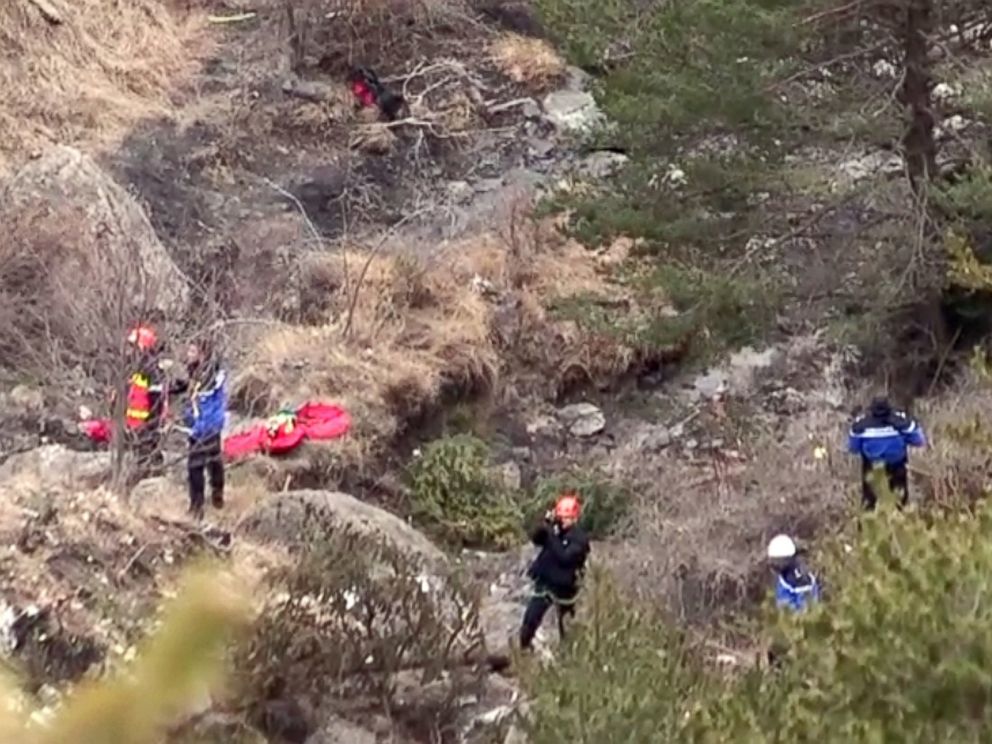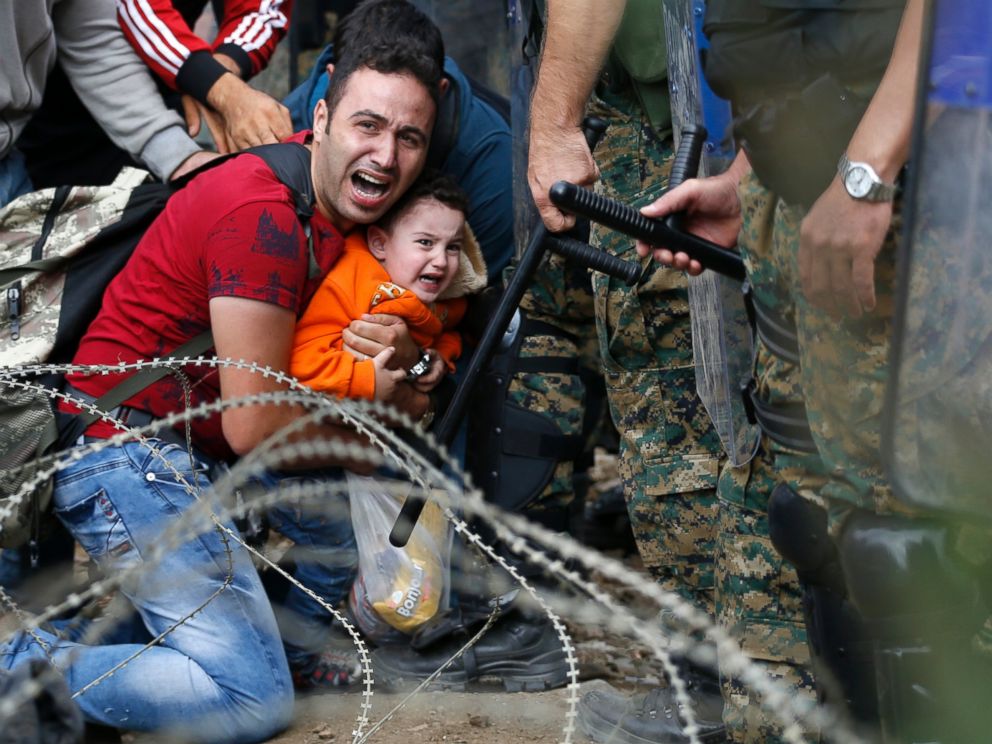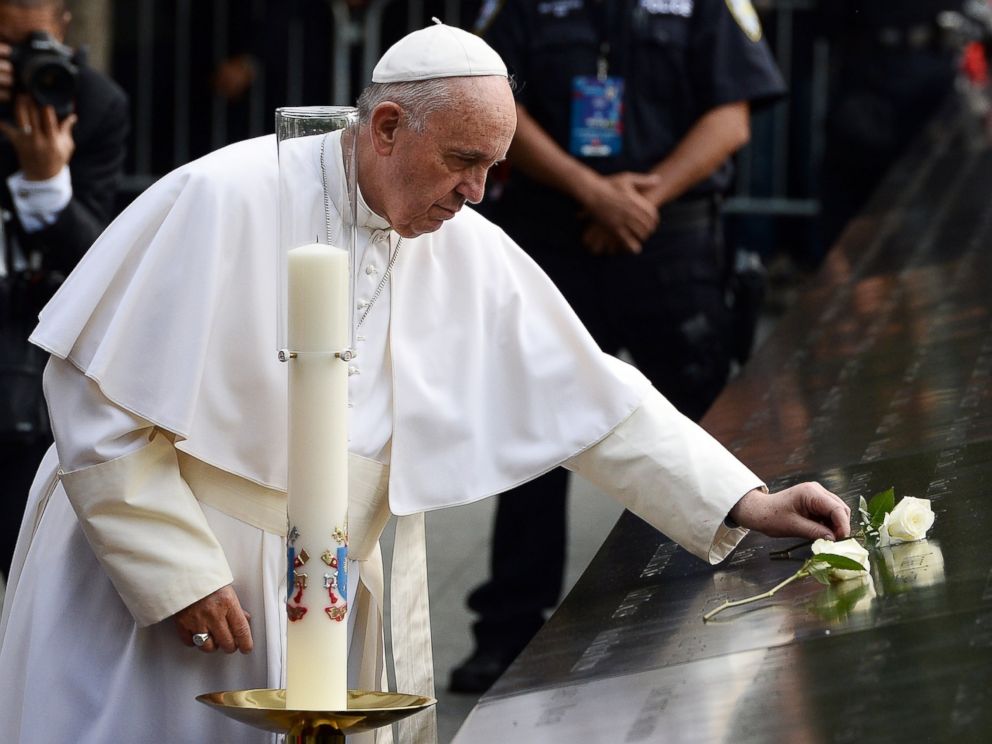Dramatic and a year for historical significance. This photo essay is by no means a complete 2015 diary and is not in order of occurrence.
Charlie Hebdo Attack in Paris
Terror struck in Paris one week into the New Year when a group of men with extensive ties to terrorist organizations targeted the offices of a famed satirical newspaper. Two men shot their way into the offices of Charlie Hebdo while a third waited near the getaway car. The shooters forced their way into the publication’s offices, killing a maintenance man and police bodyguard assigned to protect the editor after he received death threats. Once arriving at the office, they proceeded to kill nine others, mostly editorial staff gathered for their weekly meeting, injuring an additional 11. A faction of al Qaeda claimed responsibility.
The attacks continued in France for two more days, taking the lives of six others, including two police officers and four people held hostage at a kosher grocery store in Paris. The three perpetrators also died.

PARIS 1/11/2015
More than 40 world leaders marched in honor of the 17 victims of terrorist attacks on the satirical newspaper Charlie Hebdo and a Jewish supermarket.

A major aviation mystery in 2015 differed from the series of crashes the previous year in that the plane’s recording device led investigators to a suspect shortly after the deadly crash: the co-pilot. The recording from inside the cockpit of Germanwings Flight 9525 during the March 24 flight from Barcelona to Dusseldorf indicated that co-pilot Andreas Lubitz locked the lead pilot out of the cockpit during a break and proceeded to direct the plane toward the mountains of the French Alps, killing all 150 passengers and crew on board.
“The intention was to destroy the plane,” Brice Robin, the public prosecutor of Marseille, said during the investigation.

PAYNESVILLE, LIBERIA 1/26/2015
Benetha Coleman, a nurse’s aide and Ebola survivor, comforted an infant girl with symptoms of the disease in a high-risk treatment area.

A train derailment in Philadelphia killed eight and injured more than 200 Amtrak passengers in May after the Northeast Regional train sped around a curve and went off the track. The train’s engineer. who survived, could not explain what caused the deadly crash. The National Transportation Safety Board led the investigation into the accident and determined that the train accelerated before the crash and had been traveling in excess of 100 mph, which was more than twice the speed limit for that area of the track.

MIRONOVKA VILLAGE, NEAR DEBALTSEVE, UKRAINE 2/17/2015
A child played cards in the local Palace of Culture, used as a bomb shelter during fighting between the Ukrainian Army and Russian-backed militants.

One of the biggest stories of the summer seemed like something straight out of a Hollywood movie. It involved two prisoners, a sexual liaison with a prison worker who smuggled tools hidden in frozen meat and a midnight escape with a smiley-faced getaway note. David Sweat and Richard Matt, both convicted murderers, escaped from the maximum security Clinton Correctional Facility in upstate New York on June 6, crawling out of sewage pipes and digging through cell walls a la “The Shawshank Redemption.”

TAIPEI, TAIWAN 2/4/2015
A picture from a video of a TransAsia Airways plane as it struck an elevated highway before plunging into a river, killing 43 people.

The gunman in another tragic shooting claimed it was the racism of the Charleston church shooting that prompted him to create a scene of carnage in the late summer. Vester Lee Flanagan, a disgruntled former news anchor, shot two of his former colleagues while they were on the air on location for a Roanoke, Virginia, TV station. The Aug. 26 shooting left reporter Alison Parker and cameraman Adam Ward dead. Flanagan later posted a video on social media of the shooting that he appeared to have filmed during the attack using a portable camera. He also sent a manifesto and called ABC News after the shooting. He shot himself to death during a car chase with police later that day.

SELMA, ALA. 3/7/2015
President Obama marched with thousands across the Edmund Pettus Bridge on the 50th anniversary of the Voting Rights Act of 1965.

Four of the biggest trials of the year all resulted in guilty verdicts and one of those murderers now faces a death sentence. The first verdict came in February when Eddie Ray Routh was found guilty of killing “American Sniper” Chris Kyle and his friend Chad Littlefield. Though Kyle was well-known before the trial because of his bestselling book, the case gained even more national attention when his biopic came out just over a month before the trial started. Routh received a sentence of life without parole. He has filed a notice of appeal.
HILLAR CLINTON email scandal
A key aid to Hillary Clinton is the focus of a separate FBI investigation into the former secretary of state’s use of a private unsecured server. Bryan Pagliano, who invoked his Fifth Amendment right more than 500 times to avoid testifying before a House Committee investigating the Benghazi terrorist attack. Investigators are trying to determine more about Clinton’s use of a private server that contained highly classified material.
OFFICE OF PERSONNEL MANAGEMENT HACK
The massive hack into federal systems announced last week was far deeper and potentially more problematic than publicly acknowledged, with hackers believed to be from China moving through government databases undetected for more than a year.

MONTREUX, SWITZERLAND 3/3/2015
Secretary of State John Kerry, center, took a break during a meeting with Iran’s foreign minister, Mohammad Javad Zarif, over limiting Tehran’s nuclear program.

Former New England Patriots star Aaron Hernandez was found guilty in April and sentenced to life in prison without parole after killing Odin Lloyd, who was dating Hernandez’ fiancee’s sister. The case turned into a family drama as both Hernandez’s fiancee, who was granted immunity for her testimony, and her sister took turns on the witness stand. His appeal is underway.

In another case, Dzhokhar Tsarnaev, the surviving brother of a pair of siblings, was found guilty in April of all 30 charges that he faced in connection to the 2013 Boston Marathon bombing and his ensuing flight from police, which included the killing of an MIT police officer. One month later, he was sentenced to death after the conclusion of the penalty phase of his trial. The first of many expected appeals is underway.

BALTIMORE 4/28/2015
Community members formed a buffer between the police and protesters at dusk, a day after protests over the death of Freddie Gray turned violent.
EL CHAPO GUZMAN ESCAPE from prison
PLANNED PARENTHOOD VIDEOS, BABY PARTS

WASHINGTON 4/16/2015
President Obama, in the Rose Garden, signed the so-called doc-fix bill, which permanently ended automatic Medicare payment cuts to doctors.

CATHEDRAL CITY, CALIF. 4/3/2015
In California, where lush developments like this one abut bone-dry desert, the governor imposed mandatory water restrictions after a long drought.

BHAKTAPUR, NEPAL 4/29/2015
Residents retrieved belongings from homes four days after a 7.8 magnitude earthquake rocked the country and left over 9,000 dead.

IN THE ANDAMAN SEA OFF THAILAND 5/14/2015
Rohingya migrants on a fishing boat, part of an exodus in which thousands of people took to the sea to flee ethnic persecution in Myanmar.

ROOSEVELT ISLAND, N.Y. 6/13/2015
Hillary Clinton was joined onstage by her husband, former President Bill Clinton, at a rally to kick off her presidential campaign.

SANA, YEMEN 6/12/2015
Yemenis searched for survivors at a Unesco World Heritage Site after an explosion that witnesses said was caused by Saudi airstrikes. Saudi Arabia denied responsibility.

COLUMBIA, S.C. 7/10/2015
The massacre of nine black churchgoers in Charleston was a catalyst for the permanent removal of the Confederate flag from South Carolina’s state house.

ATHENS 7/10/2015
A pensioner waited to withdraw money from Greece’s national bank. The country implemented more austerity measures to address its debt crisis.

MANHATTAN 7/10/2015
The United States women’s soccer team celebrated at a ticker-tape parade after winning the World Cup.

KOS, GREECE 8/15/2015
Laith Majid, an Iraqi, broke out in tears of joy, holding his son and daughter, after they arrived safely in Kos on a flimsy rubber boat.

HORGOS, SERBIA 8/31/2015
A mother rested with her daughter and other relatives in a field during their almost two-month journey to escape violence in Syria.
JPOA IRAN NUCLEAR DEAL

Tens of thousands of people fleeing war-torn Syria and other areas in the Middle East and Africa spent much of this summer making the laborious, and dangerous, trek through Europe toward countries including Germany and Sweden in hopes of finding asylum. The influx of refugee families prompted international disputes and policy shifts as countries such as Hungary started to close some of their borders and put up fences with razor wire to prevent people from entering. President Obama’s plan to allow 10,000 Syrian refugees into the United States met with stiff resistance from some House Republicans who have called for stricter certifications that none of the immigrants poses a security risk.
Same-Sex Marriage Debate

The Supreme Court made a landmark decision in June, voting to allow same-sex couples to marry nationwide. The 5-4 decision was praised by many, including President Obama, who called it a “victory for America.” But not everyone was pleased with the decision. A county clerk in Kentucky became a touchstone for the national debate after she claimed it was against her religious beliefs to issue marriage licenses to same-sex couples. Kim Davis was jailed for nearly a week for defying a judge’s order to issue any marriage licenses in Rowan County.
Pope Francis Visits the US

One of the biggest moments of national excitement came when Pope Francis made his inaugural visit to the United States, sweeping the country up in a serious case of Pope-mania. His visit started in Washington, D.C., after a trip to Cuba, and he went on to visit New York and Philadelphia before returning to the Vatican. Some of the highlights of the trip included a historic address to Congress, frequent rides in his Fiat and a particularly memorable moment shared with a baby girl dressed up like a pope.

WASHINGTON 9/23/2015
President Obama welcomed Pope Francis to the White House during the pope’s first visit to the United States.
Another Terror Attack in Paris

A series of coordinated terror attacks struck fear through the heart of the French capital on Friday Nov. 13. A combination of shooters and men wearing explosive vests targeted a football stadium, restaurants and a concert venue that evening, leaving 130 people dead.
French officials determined that the attackers had ties to ISIS, which has claimed responsibility. The alleged ringleader of the attacks was killed five days later when authorities raided his apartment in the northern Paris suburb of Saint-Denis. An international manhunt is still underway at this time for at least one other suspect.

GREECE-MACEDONIA BORDER, NEAR IDOMENI, GREECE 8/26/2015
A child stood near police controlling a rush of refugees into Macedonia.

CLEARLAKE, CALIF. 8/3/2015
A firefighter was silhouetted by his headlamp as he battled the Rocky Fire, a wildfire that spread over three counties and burned over 60,000 acres.

HAVANA 8/14/2015
Workers hanging the seal of the United States at the reopened American Embassy.

TIANJIN, CHINA 8/15/2015
Rows of motor vehicles were destroyed in chemical explosions that killed 160 people and were strong enough to register on earthquake scales.

SHANKSVILLE, PA. 9/3/2015
A new visitor center and museum told the story of Flight 93, forced down by passengers after it was hijacked by terrorists on Sept. 11, 2001.

BUDAPEST, HUNGARY 9/5/2015
A Syrian father, center, slept with his son and other family members on the floor of a bus driving from Budapest to Vienna.

HUNGARY-SERBIA BORDER, NEAR HORGOS, SERBIA 9/16/2015
A man tried to save his child as Hungarian police officers fired tear gas, pepper spray and water cannons at migrants trying to cross into the country.

BODRUM, TURKEY 9/2/2015
Aylan Kurdi, the Syrian toddler whose drowning off the coast of Turkey drew public sympathy to the refugee crisis.

KOBANI, SYRIA 10/27/2015
Nine months after coalition airstrikes and Kurdish fighters repelled an invasion by the Islamic State, the city was still in ruins.

MANHATTAN 10/21/2015
New York City police officers stood at attention as the remains of Officer Randolph Holder, who was killed on the job, were taken from a Harlem hospital.

WASHINGTON 10/29/2015
Representative John A. Boehner hoisted a box of tissues to laughter during his farewell remarks before the House elected Paul D. Ryan to replace him as speaker.
The Metrojet Airbus 321, bound for St Petersburg and carrying mostly Russian citizens, crashed in Egypt’s Sinai desert just 23 minutes after take-off from Sharm el-Sheikh.

PARIS 11/13/2015
A victim outside the Bataclan theater, where 90 people were killed during coordinated terrorist attacks that left 40 more dead across the city and in a northern suburb.

SAN BERNARDINO, CALIF. 12/7/2015
A candlelight vigil commemorated the 14 victims of a mass shooting by a radicalized Muslim couple.

BEIJING 12/8/2015
Schools were closed, driving restricted and factories shut down after China’s capital issued its first ever “red alert” for air pollution.

WASHINGTON 12/12/2015
The lectern in the Cabinet Room of the White House where President Obama announced a historic agreement among 195 nations to reduce greenhouse gas emissions.
RAMADI, Iraq 12/27/2015
Iraqi forces with U.S air support are taking back ‘some’ neighborhoods in the Anbar Province.
DALLAS, Texas 12/27/2015
Tornado devastation in Texas killing 48.
http://abcnews.go.com/US/year-review-13-biggest-news-stories-2015/story?id=35852690 and http://www.nytimes.com/interactive/2015/12/27/sunday-review/2015-year-in-pictures.html?_r=0








































